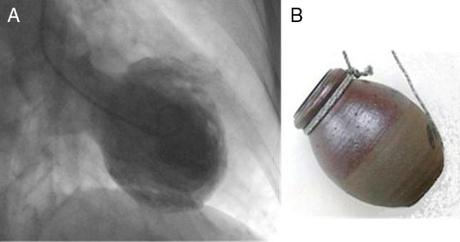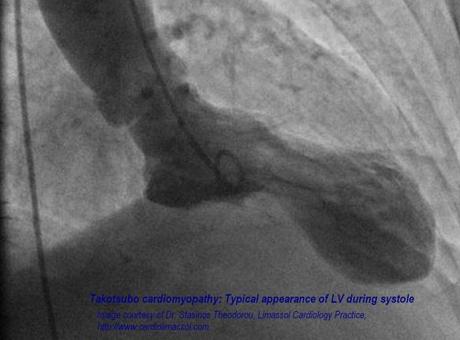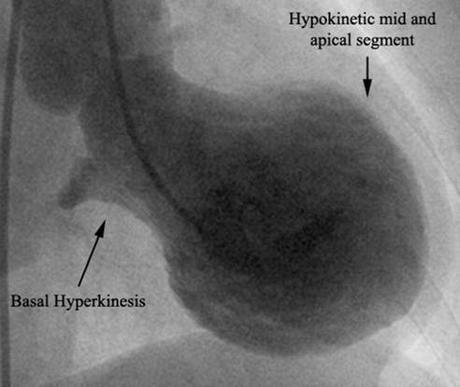The term "broken heart" is well known to everyone. From Romeo and Juliet, to shattered romances, to many a teenager's angst, a broken heart seems to be part of life. Everyone's been there. But can you die from a broken heart? You bet.
In a very unusual medical condition known as Takotsubo's Cardiomyopathy, dying from a broken heart can actually occur. Takotsubo is a Japanese octopus trap and is shaped like a dilated and damaged left ventricle as happens in a cardiomyopathy.

Cardiomyopathy is a big word but when broken down into its components is fairly easy to understand. Cardio means heart, myo means muscle, and opathy means disease. So a cardiomyopathy is a disease of the heart muscle. It often results from coronary artery disease where multiple heart attacks (myocardial infarction or MI) have occurred, damaging the muscle severely. It also can occur after viral infections, certain meds and drugs that are toxic to the myocardium, odd diseases like amyloidosis, some members of the disease group we call autoimmune disorders, and other maladies.
We analyze the pumping function of the heart in many ways. Echocardiograms, CT and MRI angiograms, and with a ventriculogram done as part of a cardiac cauterization procedure. Here a catheter is passed through an artery and into the left ventricle-the heart's main pumping chamber-and contrast material is injected while a digital video is made. A normal ventriculogram shows the heart squeezing in tightly as the heart muscle contracts.

An abnormal one, such as is seen in a cardiomyopathy, will show diminished "squeezing" during the contraction phase (systole) of the cardiac cycle.

An odd form of cardiomyopathy is Takotsubo's Cardiomyopathy. In this circumstance, extreme emotional upset changes the physiology of the heart muscle in some fashion and leads to it being "stunned" or damaged. The actual mechanism for how this happens is not known but the result is a significant weakness of the heart muscle, which, in turn, can lead to heart failure and death. It is not common, but it is real.
This is likely what happened to Joanie Simpson and perhaps the famous actress Debbie Reynolds.
